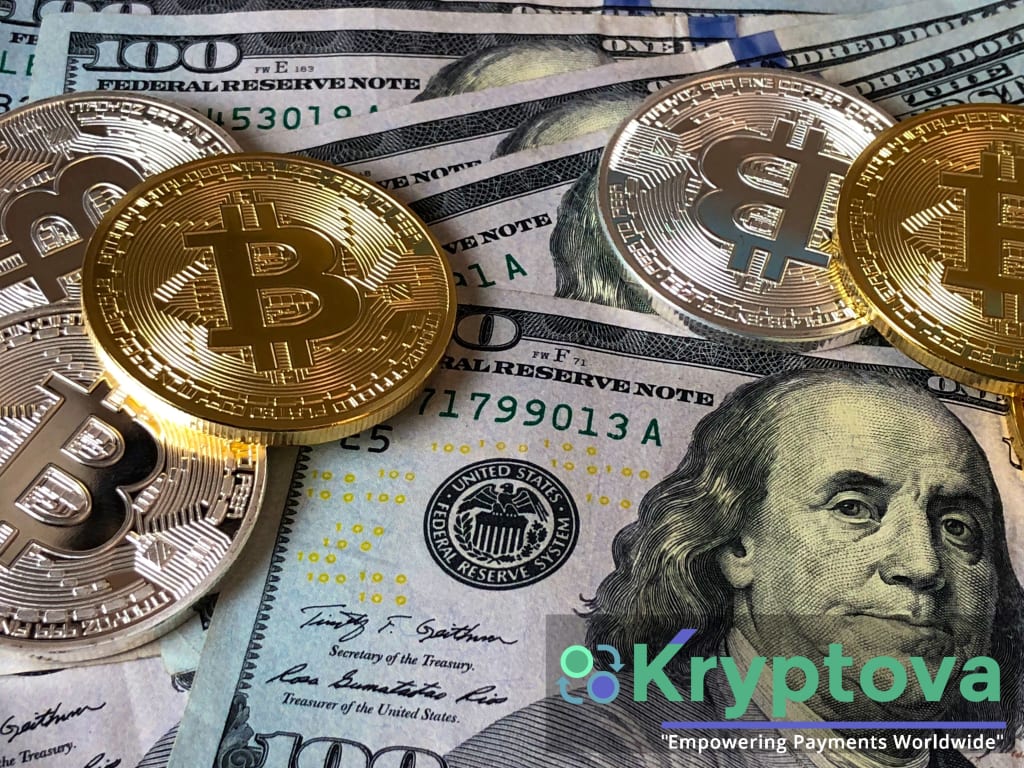Difference between Centralized and Decentralized Crypto Exchange
A Crypto Exchange is a platform where investors can trade, buy or sell cryptocurrency. A crypto exchange serves many purposes- investors can trade one cryptocurrency for another, for example converting Bitcoin to Ethereum, buying cryptocurrency using fiat currency, and even converting your cryptocurrency back to fiat currency. In simpler terms, a cryptocurrency exchange acts as an intermediary between a crypto buyer and seller.

A Crypto Exchange is a platform where investors can trade, buy or sell cryptocurrency. A crypto exchange serves many purposes- investors can trade one cryptocurrency for another, for example converting Bitcoin to Ethereum, buying cryptocurrency using fiat currency, and even converting your cryptocurrency back to fiat currency. In simpler terms, a cryptocurrency exchange acts as an intermediary between a crypto buyer and seller.
Cryptocurrency Exchanges can be broadly classified into two types-
1. Centralized Crypto Exchange
2. Decentralized Crypto Exchange
Both centralized and decentralized exchanges have their advantages and disadvantages. This article will point out the major differences between the two, so that you can make an informed decision as to which type of exchange suits you best.
Centralized Cryptocurrency Exchange (CEXs)
Centralized cryptocurrency exchange is a platform where cryptocurrency can be bought, sold, or traded, with the help of a third party acting as an intermediary. Here, you need to put your trust in a third party who constantly monitors every transaction and secure the assets on behalf of the buyer and seller. This is common in a bank setup, where a customer trusts the bank to hold his or her money. Some examples of centralized crypto exchanges are Coinbase, GDAX, Kraken and Gemini.
Now let us have a look at the advantages and disadvantages of a centralized crypto exchange.
Advantages
• User friendly - Beginner investors will find centralized exchanges to be a familiar and comfortable method to trade and invest in cryptocurrency. Users using centralized exchanges can easily log into their accounts, see their account balances, and conduct transactions through applications and websites, as opposed to utilising crypto wallets and peer-to-peer transfers, which can be complicated.
• Trustworthy - When it comes to transactions and trading, centralized exchanges provide an added degree of security and dependability. Centralized exchanges provide more comfort by allowing transactions through a well-developed, centralised platform.
Disadvantages
• Risk of getting hacked - Since the companies operating centralized crypto exchange are entirely responsible for the accounts of their customers, they become highly susceptible to cybersecurity attacks and hacking risks. Large exchange platforms generally have billions of dollars’ worth of crypto assets in their holding, which becomes a target for hackers.
• Transaction fees - Centralized crypto exchanges usually charge a high transaction fee for the services they provide. This transaction fee imposed by centralized platforms can become a burden on the investor when trading in large amounts.
Decentralized Cryptocurrency Exchanges (DEXs)
A decentralized crypto exchange provides a platform to users where they can execute peer-to-peer transactions without involving any third party. Here, a user remains in control of their private keys and other account related information. DEXs use smart contracts to self-execute under predetermined conditions and record each transaction on the blockchain, since a central authority is absent here. Some common decentralized crypto exchange platforms are AirSwap, Barterdex, Tokenlon and Venus.
Let us now have a look at the pros and cons of a decentralized crypto exchange.
Advantages
• Privacy - Since wallets are held externally and the DEX is not accountable for the money, traders utilising decentralised exchanges do not need to disclose their private keys. Customers on decentralised exchanges are not required to fill out know-your-customer (KYC) forms, giving them privacy and anonymity.
• No hacking risk - Decentralized exchange users are not required to transfer their assets to a third party. As a result, there is no chance of a firm or organisation being hacked, and users are protected from theft and hacking.
• Lower fees - Decentralized exchanges make use of self-executing smart contracts. DEXs charge a minimal cost in the absence of a middleman. These prices change in relation to network use, but they are still far less than the expenses of centralised alternatives.
Disadvantages
• Complex interface - DEXs are still in the early phases of development, and for individuals unfamiliar with decentralised blockchain technology, they can be difficult to utilise. The user must be first familiarized with the platform and the procedure of trade.
• Lack of fiat currency - Another significant disadvantage of DEX is that they do not allow users to trade fiat currency for digital ones. Users who do not already own cryptocurrencies will find decentralised exchanges less convenient because of this reason.
• Liquidity - Just about 1% of users employ decentralized crypto exchanges for their transactions, because of which DEXs often lack liquidity. Due to lack of volume, they may provide liquidity constraints, leaving the user unable to transact seamlessly.
Difference between Centralized and Decentralized Crypto Exchange
The crucial difference between centralized and decentralized exchanges is whether or not a middle man is present. Centralized Crypto exchanges involve a third party for the execution of transactions between the buyer and seller of cryptocurrency. Whereas decentralized crypto exchanges cut out the middleman, generating what is often thought of as a "trustless" environment. These types of exchanges function as peer-to-peer exchanges.
In a centralized crypto exchange, most of the control over your account remains in the hands of the third party which runs the exchange. On the other hand, with a decentralized exchange, all the control of the account remains with you.
Moreover, compared to centralised exchanges, decentralised exchanges provide better security. Trading on centralised crypto exchanges carries a significant danger of being hacked. They could hack a third party that utilises private keys to gain access to all of the users' cash, and you may lose your whole deposit.
Conclusion
Although cryptocurrencies are still a part of a largely unexplored territory, they are gradually maturing and developing into a featured ecosystem. As a crypto investor, you need to be mindful of the various advantages and disadvantages of both centralized as well as decentralized crypto exchanges, before putting your money in. There are additional factors that come to play as well, like user-friendliness of the interface, customer support services provided by the platform, etc. But like we hear from expert’s time and again when it comes to crypto, taking the time to learn as much as you can before you put money into crypto is one of the most useful things you can do!
If you are looking for a Merchant Account to accept Cryptocurrency Payments, it’s well worth opening an account with a crypto payment gateway website. It will make the process much easier if you want to add that option to your transactions. Book your demo today on Kryptova





Comments
There are no comments for this story
Be the first to respond and start the conversation.